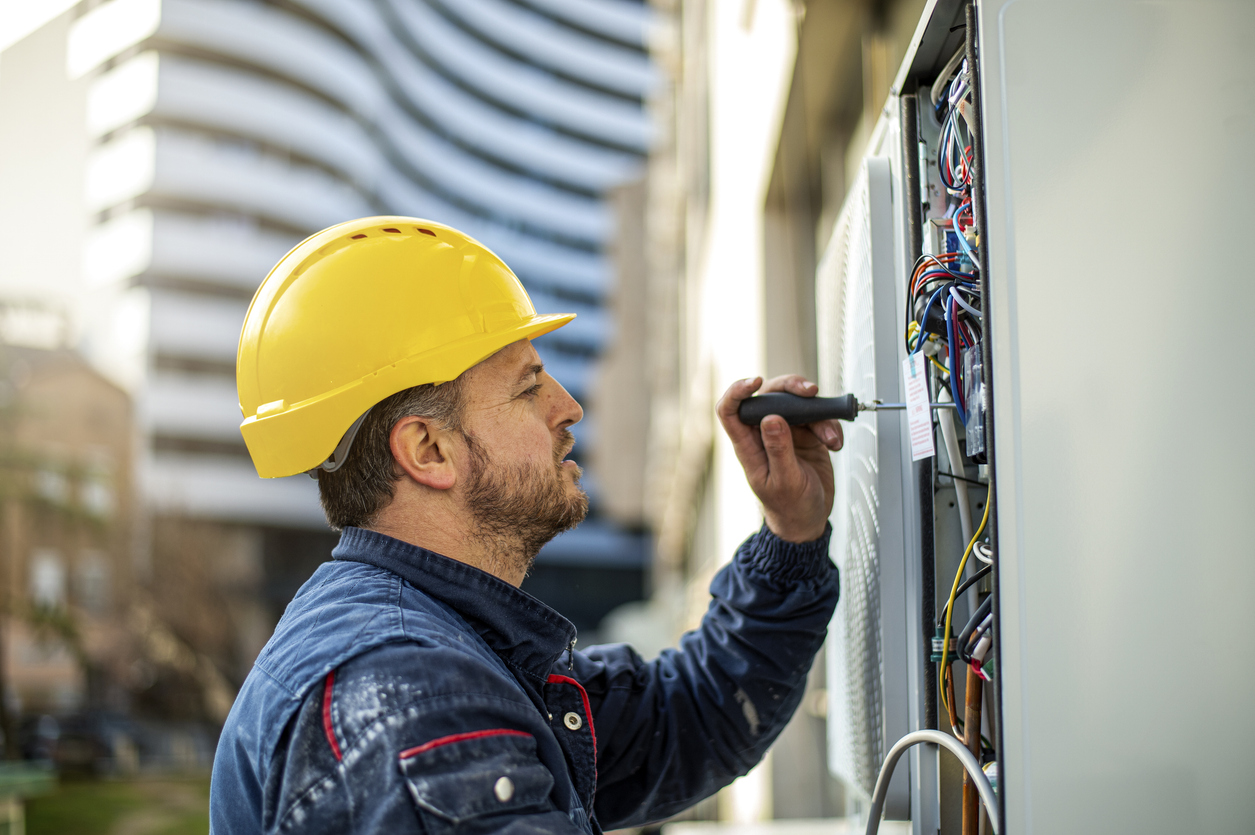
Commercial real estate in 2024 will be as complex and dynamic as ever, requiring companies to balance expense mitigation, capital availability, ESG compliance, technology modernization, property protection, and occupant safety. Among these concerns, aluminum wiring is frequently overlooked as a significant property risk impacting commercial real estate insurance. Read this report for a more complete understanding of the dangers of aluminum wiring and how to mitigate them.
What You Will Learn
- Understanding Aluminum Wiring Risks
- The Impact on Commercial Real Estate Insurance
- Managing Risks: Best Practices
- Insurance Coverage Considerations
- Warning Signs and What to Do
- Partnering for Commercial Real Estate Success
Understanding Aluminum Wiring Risks
Aluminum wiring, once commonly used before the 1970s due to its affordability, can pose electrical hazards due to:
- Cold creep: Unlike copper, aluminum expands and contracts with temperature changes, causing connections to loosen and potentially overheat and increasing fire risk.
- Galvanic corrosion: When aluminum contacts other metals, it corrodes, increasing resistance and further elevating heat generation, potentially melting insulation and sparking fires.
- Malleability: Aluminum's softness makes it more susceptible to damage during installation, increasing the risk of electrical issues.
While it’s rare to find aluminum wiring in new construction, such as podium-style construction, it may still exist in older buildings that need to be updated or retrofitted. Therefore, it is essential to identify and address any aluminum wiring issues on your commercial property to prevent possible fire hazards and ensure safety.
The Impact on Commercial Real Estate Insurance
The presence of aluminum wiring can significantly impact your insurance coverage. Insurers consider various factors, including building age and electrical systems, and may:
- Exclude coverage entirely. Some companies may refuse to insure properties with aluminum wiring.
- Offer limited coverage. Others might offer coverage with higher deductibles or premiums. As such, it’s imperative to understand your policy's specific exclusions and limitations. At Sahouri, your dedicated Advocate Team carefully scrutinizes your policies to identify any coverage gaps due to exclusions and other reasons.
Managing Risks: Best Practices
Following these proactive measures can reduce risks and potentially improve your insurance options:
- Regular inspections and maintenance: Schedule regular inspections by qualified electricians to identify and address any loose connections, faulty wiring, or signs of oxidation.
- Upgrading or replacing: Consider upgrading to safer copper alternatives, if feasible.
- Documentation and record-keeping: Maintain detailed records of inspections, maintenance performed, and any upgrades or replacements. Doing so demonstrates proactive risk management.
- Collaboration with professionals: Work with qualified electricians as well as insurance advocates like Sahouri Insurance to navigate the complexities of aluminum wiring and its implications for your coverage.
Insurance Coverage Considerations
Finding suitable coverage requires careful consideration:
- Explore coverage options: Discuss the risks and your risk management strategies with different insurance companies.
- Review policy details: Pay close attention to the specific language regarding aluminum wiring to understand any exclusions or limitations.
- Stay informed on regulations: Be aware of the relevant rules governing aluminum wiring in commercial buildings.
Warning Signs and What to Do
Warning signs of hazardous aluminum wiring conditions include:
- Unusually worn or warped outlets and switch plate covers
- Smoke or sparks from receptacles and switches
- Strange odors near receptacles and switches
- Unexplained problems with plug-in fixtures and appliances
- Periodic flickering of lights
If you discover aluminum wiring in your building, don't panic. Properly installed aluminum wiring can be safe. Consider the following steps:
- Check for properly rated fixtures: Look for outlets or switches stamped "Al/Cu" or "CO/ALR." These are safe for aluminum wiring.
- Ensure tight connections: Wires should be connected appropriately (wrapped at least three-quarters of the way around the screw in a clockwise direction).
- Consult a licensed electrician or inspector: If unsure about the wiring's condition, hire a professional to assess it and address any safety concerns.
Partnering for Commercial Real Estate Success
Managing the risks associated with aluminum wiring in commercial properties demands vigilance, knowledge, and a proactive approach to maintenance and upgrades. By partnering with Sahouri, real estate companies can confidently navigate these challenges, securing coverage that protects their investments and ensures a safer future.
Our integrated approach to commercial real estate insurance combines technological innovation with expert consultation, managed through a centralized Advocacy Team. We aim to be your most reliable and strategic partner in navigating the complex commercial real estate landscape. To explore how we can assist in securing the right coverage for your commercial properties, including those with aluminum wiring, contact Sahouri today.



